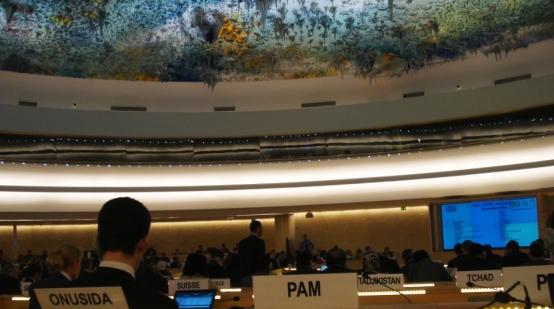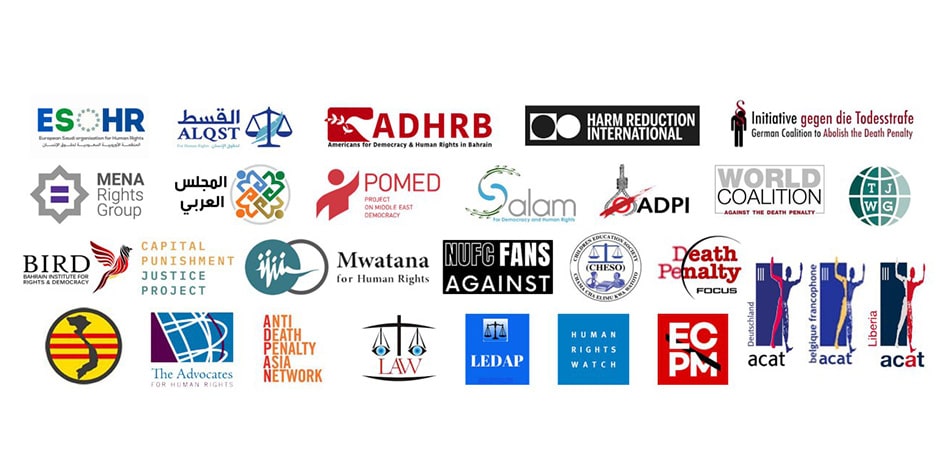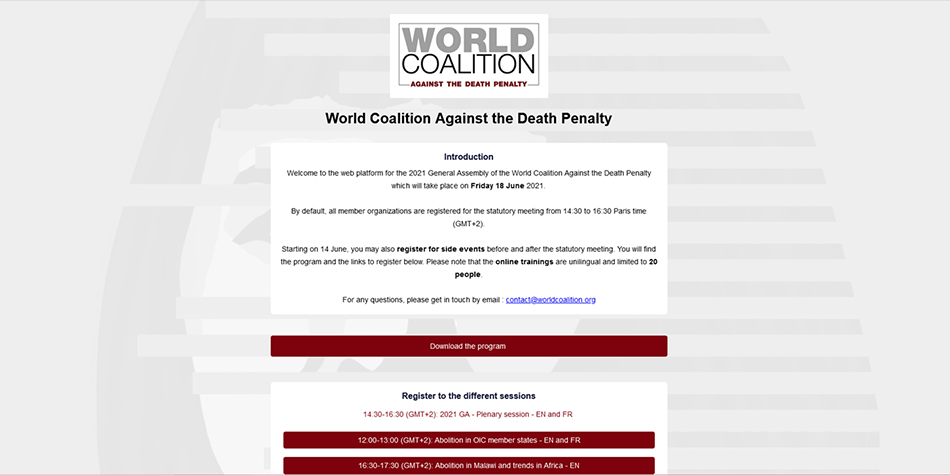
Children of people sentenced to death attract the UN’s attention
International standards
“States which use the death penalty must think about its consequences on society as a whole, particularly the families of those sentenced to death or executed”, said Flavia Pansieri.
The UN Deputy High Commissioner for Human Rights laid down the foundations of the debate organised by the UN Human Rights Council on “The children of parents sentenced to death or executed”, held on 11 September at the Palais des Nations in Geneva.
She also recalled that “in Resolution 22/11 this Council expressed its profound concern at the negative impact of the imposition or implementation of the death penalty on the rights of the children of parents sentenced to death or executed. You pressed States to give these children the protection and the assistance they need.”
The panellists, members of civil society and academics, recalled the international standards in force applicable to children. They maintained that the superior interest of the child must be a primordial consideration in the choice of sentence.
“We do not know how many are affected”
Marta Santos Pais, Special Representative of the UN Secretary General on violence against children, said that “before today [the children of prisoners sentenced to death] were invisible in statistics and programmes. We still do not know how many are affected, who they are and how they are affected.”
The Ambassador for Norway expressed the urgent need to examine the consequences of a criminal system using the death penalty on the children of prisoners sentenced to death: “We are convinced that the Human Rights Council is the appropriate place to discuss the death penalty.”
Jan Wetzel, advocate on the death penalty with Amnesty International, made a speech on the minimal guarantees that retentionist States should provide for the families of those sentenced to death.
Oliver Robertson, representative of Penal Reform International, explained that several aspects of the issue had still not been explored and that it might be useful to organise a meeting of experts.
Exchange of good practice
The debate continued within the framework of a parallel event organised by the permanent missions of Belgium, Montenegro, Norway and Switzerland, as well as the Quaker UN Office.
The debate continued during the informal meeting and good practices to be developed to support the children of parents sentenced to death (the importance of visits) or those executed (the consequences of death and therapeutic assistance) were discussed.
The work of Jordan’s National Centre for Human Rights (training for the police on the behaviour to adopt when faced with a child during arrests, work with the media) and Thailand’s National Human Rights Commission (encouraging visits) were cited as examples. Rachel Brett, representative from the Quaker UN Office, considered that “for countries where there is a moratorium on executions, the issue is even more important. If these countries are not ready to abolish the death penalty or establish a moratorium on death sentences, there is a tool available: commuting death sentences to imprisonment.”
The death penalty on the agenda of the 25th session of the Human Rights Council
The panel was the opportunity for several States to reiterate their commitment to abolition. Spain pointed to the 5th World Congress Against the Death Penalty held in Madrid in June 2013. The representative from Poland recalled that the country recently ratified the UN Protocol on abolition of the death penalty.
Other States recalled that the death penalty was a sovereign issue and that it was difficult to reach a general consensus. Thailand announced that it would hold a public debate on the question of abolition.
The death penalty will remain on the agenda of the Council as, following the resolution presented by France, Benin, Costa Rica, Moldova and Mongolia, the 25th session of the Council, which will be held in February 2014, will include a high level debate on the issue of the death penalty and its universal abolition. The High Commissioner for Human Rights will also present a report on the results of the September panel.
Categories
Juveniles






